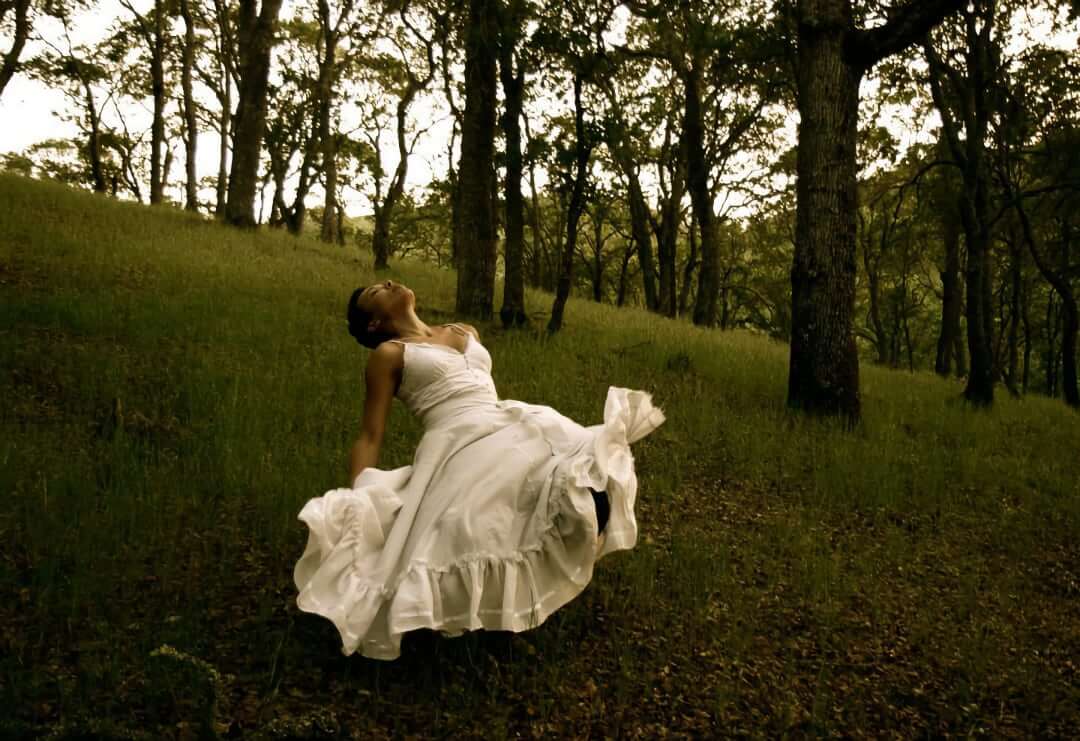Announcing the Southern Artists for Social Change Cohort 3
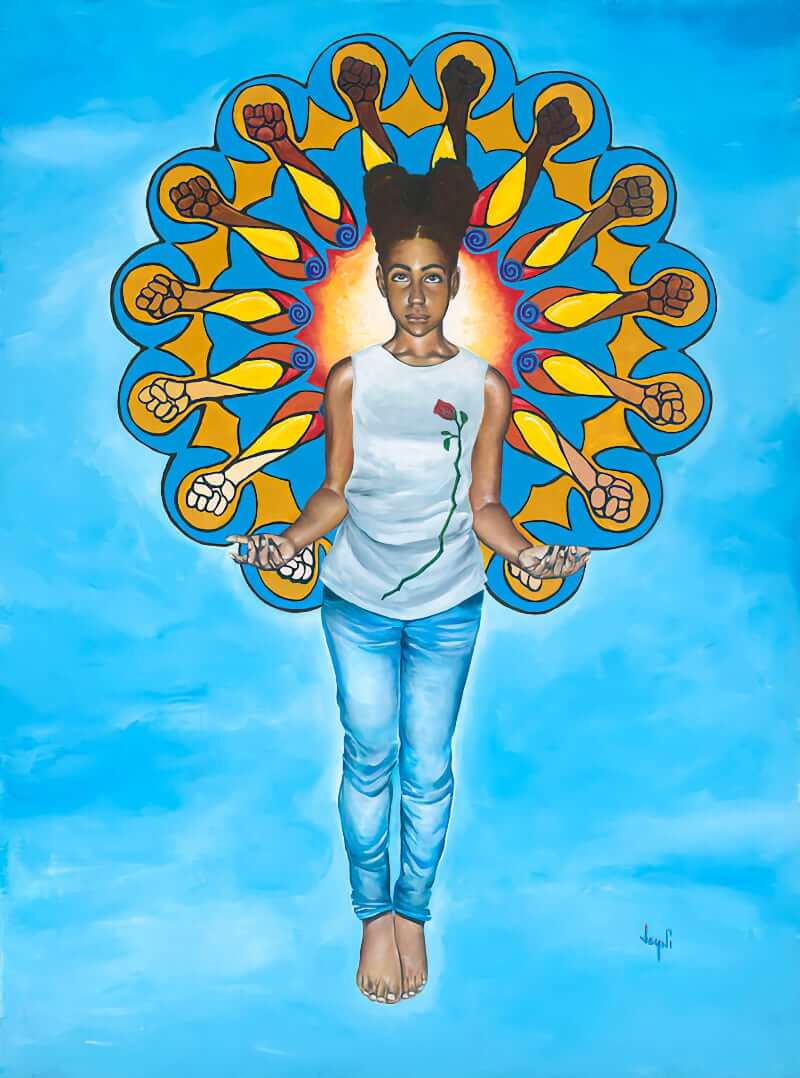
NPN’s Southern Artists for Social Change envisions a world in which people of color living, working, and organizing for community change in the South have the power, resources, and opportunities to thrive.
“This grant supports social change specifically happening in the Deep South,” says NPN Community Liaison for Southern Artists for Social Change D.D. DuBois. “Many of the civil rights leaders of the 50s and 60s lived, worked, and organized in the South even as they became Elders, and there are still activists who—despite systemic and institutional oppression—create social change within their community. This is an opportunity to support them and their work.”
The Southern Artists for Social Change program provides $25,000 project grants to artists and culture bearers of color engaging in social change in urban, rural, and tribal communities of Alabama, Louisiana, and Mississippi. The grant is part of the Surdna Foundation’s Radical Imagination for Racial Justice initiative, which has partnered with eleven organizations nationwide to support artists of color working to advance racial justice within their local communities. As part of this initiative’s US South learning cluster, Southern Artists for Social Change is a pilot program to expand NPN’s regional support beyond our local community in New Orleans, investing in the Deep South’s strong creative legacies and deep community-based practices.
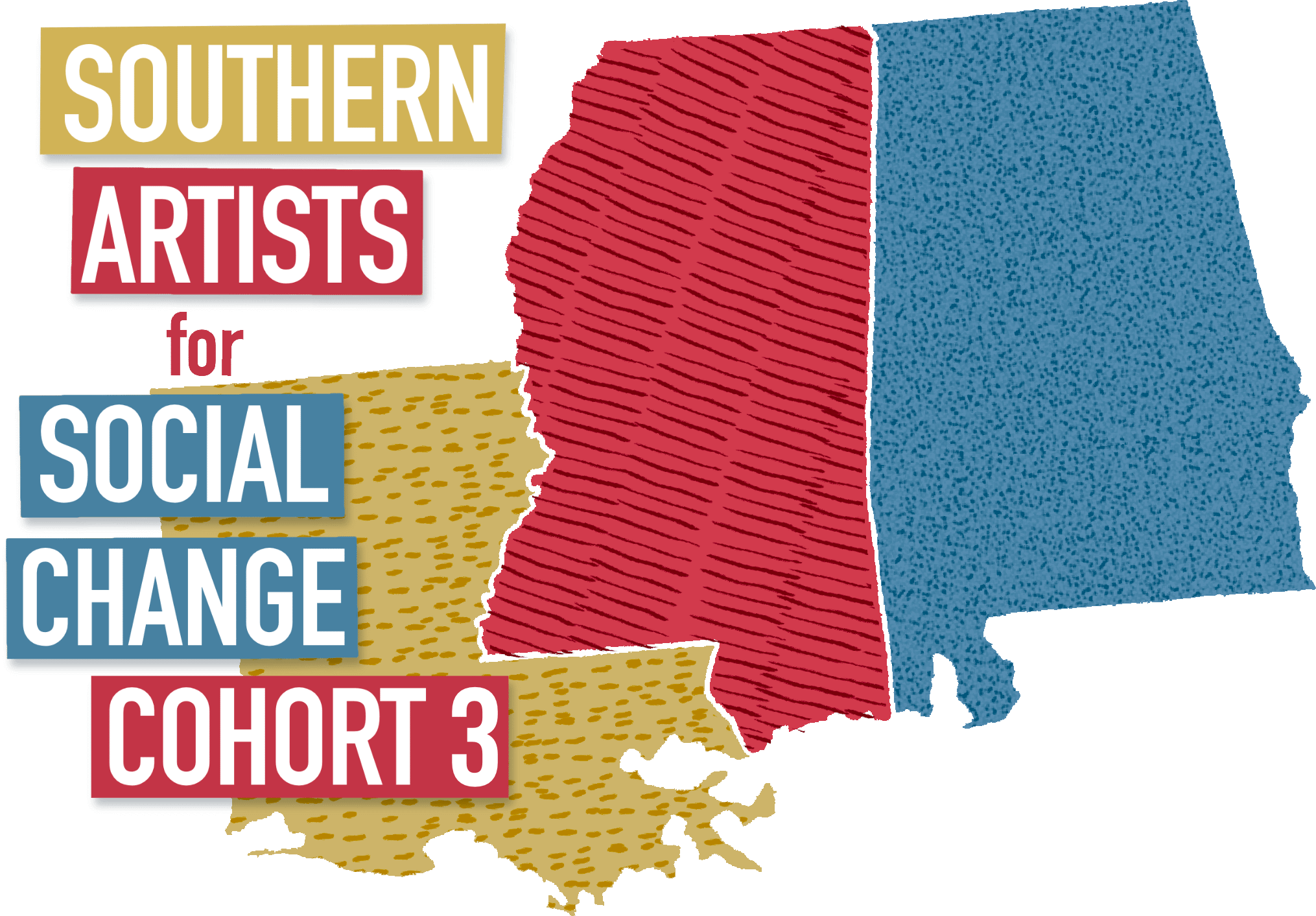
In its third year, Southern Artists for Social Change awarded $200,000 to 8 projects that identify community challenges or needs; imagine a different future; and practice, test, or design for approaches toward that future that center racial justice. Over its three years, the program has awarded $700,000 to support 28 projects. The call for submissions for the fourth cohort will open in May of 2023.
DuBois emphasized that the grant aims to foster change that goes deeper than surface-level: “Sometimes we stop at visibility, but this grant asks us to go further. It asks us to ponder how we can use that visibility and imagine a different future for ourselves. We can do better than the crumbs. We can ask for more. We can demand a whole feast because we are whole fully experiencing human beings. And we deserve nothing less. So, in your community, how can you tap into what is going to make the lives of the folks in your community better?”
“This grant is crafted for social change from an artists’ perspective,” says DuBois. “Artists help to create our society and our ways of being. When everyone can see each other as human and as more like themselves, then that’s when we become better and stronger. Nobody understands this better than people living in the South. It is not by accident that all of the major American musical artforms—Blues, Jazz, and Rock and Roll—were born in the South. This is what we do. This is who we are. This grant aims to uplift the narrative that people of color in the rural parts of Alabama, Mississippi, and Louisiana know they have the power to change what is going on around them and in their communities and are making that change happen! The world should pay attention, because if it can happen in the South, it can happen anywhere.”
INTRODUCING THE SOUTHERN ARTISTS FOR SOCIAL CHANGE COHORT 3
Kerrigan Casey
This project transforms archival documents from Alabama’s death row into a traveling multi-and mixed-media art exhibition. A collaborative effort among Black artists based in Alabama, the project will highlight the advocacy and resistance of people on death row by partnering with Project Hope to Abolish the Death Penalty, the only nonprofit founded and run by people on Alabama’s death row. The project will place artists in direct contact with people currently on death row, people who used to be on death row who have been exonerated or resentenced, and the surviving families of those who have been executed. The artists will draw from audio and visual materials in the Alabama Death Row Archive—which is managed by the Restorative Justice Lab at the University of North Alabama—to create an art installation that centers people who have been impacted by the death penalty. The exhibition focuses on the varied forms of resistance to capital punishment in Alabama, which sentences more people to death per capita than any other state.
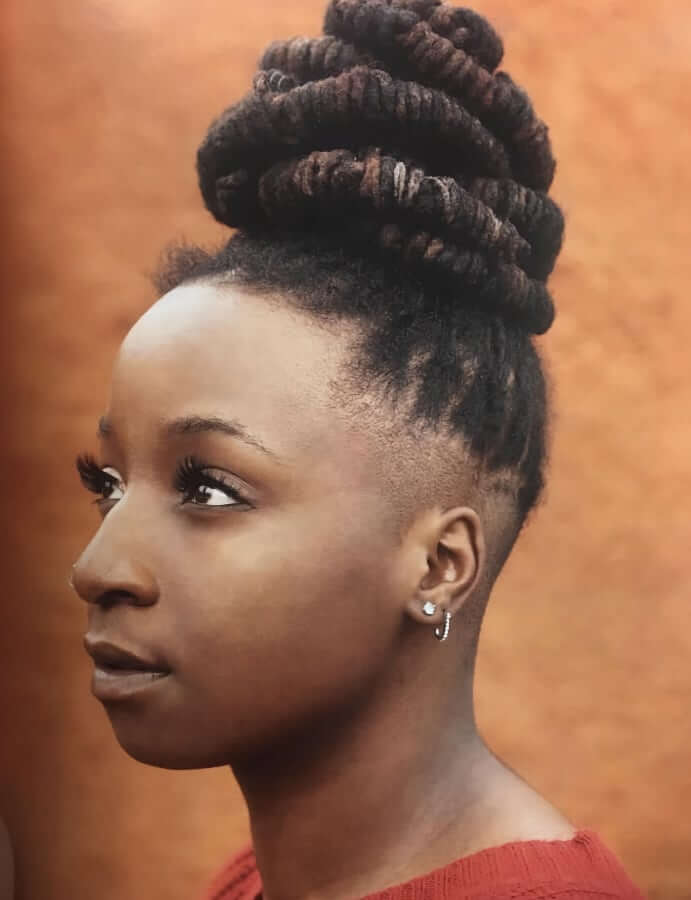
Nia DeCoux
Teen Tours centers youth as the primary creators, culture bearers, and financial beneficiaries of the tourism industry in New Orleans. DeCoux, in partnership with Last Call NOLA and Our Sacred Stories, will guide youth ages 14–18 as they research their communities and cultures. Students will connect with elders, attend events, and learn local history to gain confidence in their identities and local expertise. They will then craft an audio walking tour of the city that is well organized, personable, and unique to each student’s experience of New Orleans. On TeenTours’ GPS-based app, visitors and stakeholders will pay to download and listen to the tours. As they walk through the city, visitors can hear expert youth guides explain the city’s attractions in their own voices. As such, students not only control the narrative that tourists encounter, but also profit from their cultural expertise. Through TeenTours, the youth of New Orleans reclaim the city’s narrative and become the historical and cultural authorities of their hometown, empowering them to become the next generation of leaders in the tourism economy.
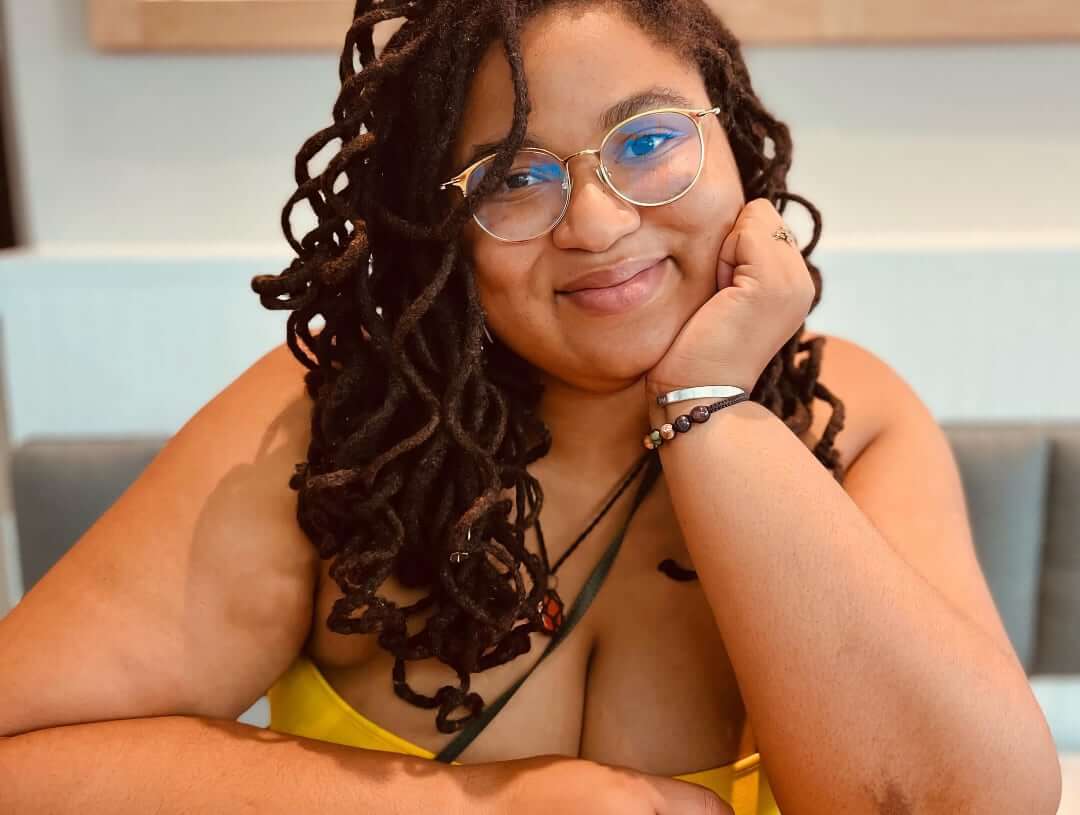
Carey M. Fountain Jr.
The Black Cherry Tree Project memorializes the 33 African Americans who were lynched in Jefferson County between the mid-1800s and the mid-1900s to address racial reconciliation. Centered in Birmingham, Alabama, the project proposes an annual day of commemoration for victims of racial terror to take place on April 16, the anniversary of Martin Luther King Jr.’s “Letter from Birmingham Jail.” The Black Cherry Tree Project commissions artists to create commemorative art pieces for each of the 33 lynched people, in consultation with Jefferson County Memorial Project’s archives. The project will also plant 33 commemorative black cherry tree saplings in public locations across Birmingham, alongside a marker that names the person and provides a QR code with more information on their personal story and artworks commemorating them, as well as a form where viewers can submit their own reflections. So far, the project has generated artworks commemorating 17 of the 33 documented lynching victims, which were presented as an exhibition and program series at Gallery Vox and Ground Floor Contemporary Gallery in 2021.
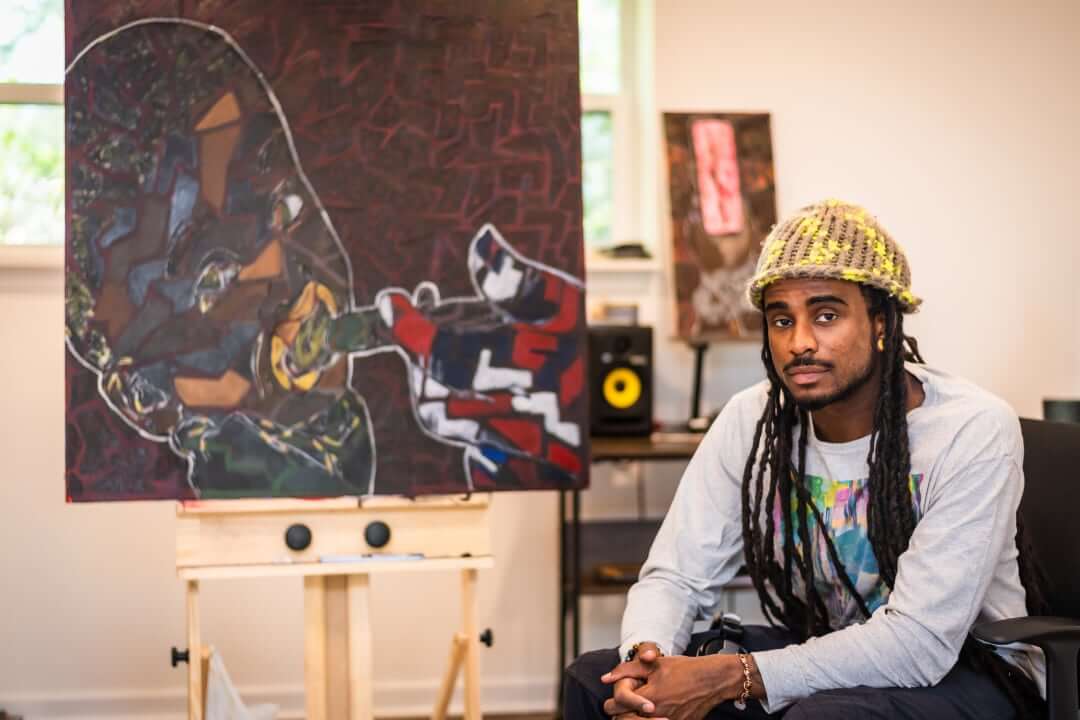
L. Kasimu Harris
Vanishing Black Bars & Lounges is a multifaceted project that explores means for long-term sustainability of Black bars in New Orleans by working with bar owners and other stakeholders in the food and beverage industry. The project is also a visual and oral documentation of these establishments, venerable safe spaces in the Black community from which culture—including that of Social Aid & Pleasure Clubs and Black Masking Indians—has emanated for centuries. Harris has been photographing, conducting interviews, and writing stories about Black bars and their people since 2018. He will increase the scope of this project by creating a documentary film gathering the stories and history of Black bars and lounges and by looking toward long-term sustainability models, such as forming a Group Purchasing Organization in partnership with Black bar owners and community collaborators. The project aims to support and tell the stories of these iconic spaces and uplift their contributions to the fabric of the city and beyond.
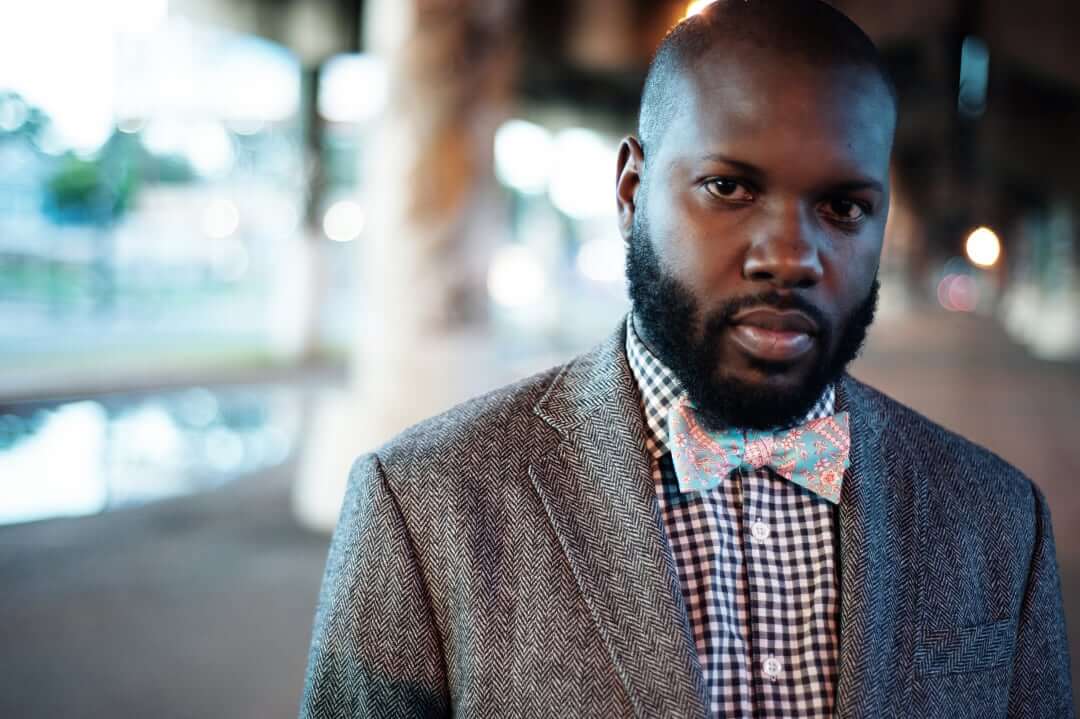
Jeri Hilt
Bury ‘Em Deep: An Avalanche of Turquoise is an arts- and arts journalism–based initiative designed to mainstream the dialogue regarding the repatriation and return of Ancestral human remains from so-called institutions of historical memory (museums) to their respective homelands and communities. This mixed-media initiative seeks to educate and engage communities about the policies and processes of repatriation practices by using art to honor and memorialize Ancestors who have not yet been returned. The artists will memorialize First Nations people from this continent whose human remains are currently held in museums across America and Europe through in-person ceremonial work, digital arts content, and an art exhibition. The project aims to increase awareness about repatriation and encourage the fair and restorative treatment of these ancestral remains. By honoring and memorializing these ancestors, descendant communities will forge a reality in which they are acknowledged, celebrated, and able to rest.
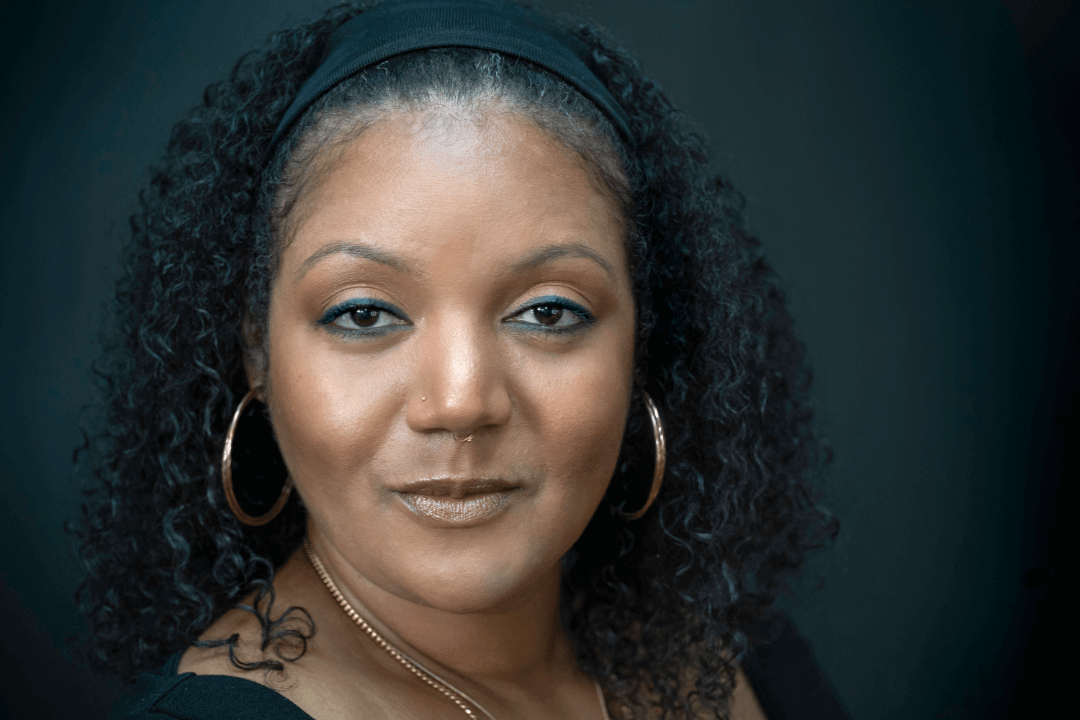
John “Jahni” Moore / United Federation of Artistic Minds
WE will use art to reestablish an awareness of the historical presence of African American and Indigenous culture in Magnolia Terrace and surrounding neighborhoods in Huntsville, AL. The project will establish the Drake House—a site formerly owned by Joseph Fanning Drake, the fourth president of Alabama A&M University—as a base to create community. The artists will restore the house into a central creative and informative beacon space that represents what the neighborhood did and can look like and will host workshops, art exhibits, and community planning events. WE has acquired the building and begun to use it as a space for creative planning and a community garden. By creatively informing the residents and the city of Huntsville of the significant contributions of African American and Indigenous people in their community, the artists hope to address the reality of urban takeover known as gentrification and slow down the displacement of the present BIPOC residents by giving them a safe space in the heart of continued development in the city.
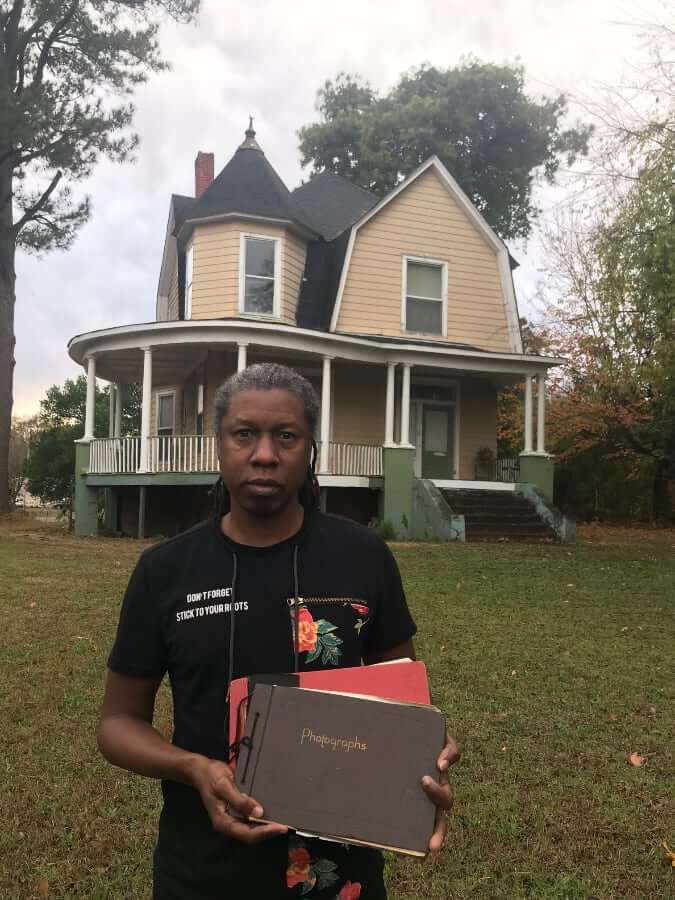
Jazmine Walker
The Sweet Magnolia Fund is a community mutual aid fund that provides opportunities for Black Queer, Trans, Gender Non-Conforming, Lesbian, Gay, Questioning, Intersex, Asexual, and Bisexual artists opportunities to further their artistic development, advancing both an inclusive and vibrant arts community and a cultural shift in Mississippi. Created to support artists in response to Jackson’s water crisis, the Sweet Magnolia Fund provides grants between $500 and $5,000, as funding allows, to Black LGBTQIA+ artists in Mississippi in mediums including visual art, performance, food, film, dance, and others. The program also sponsors So(u)lday Sunday, an art exhibition and safe space for Black LGBTQ+ artists, performers, food artisans, and other creatives inaugurated in June 2022. The Sweet Magnolia Fund’s mission is to steward a just and vibrant arts and educational culture that will support the growth and creative expression of Black Queer & Trans people in Mississippi.
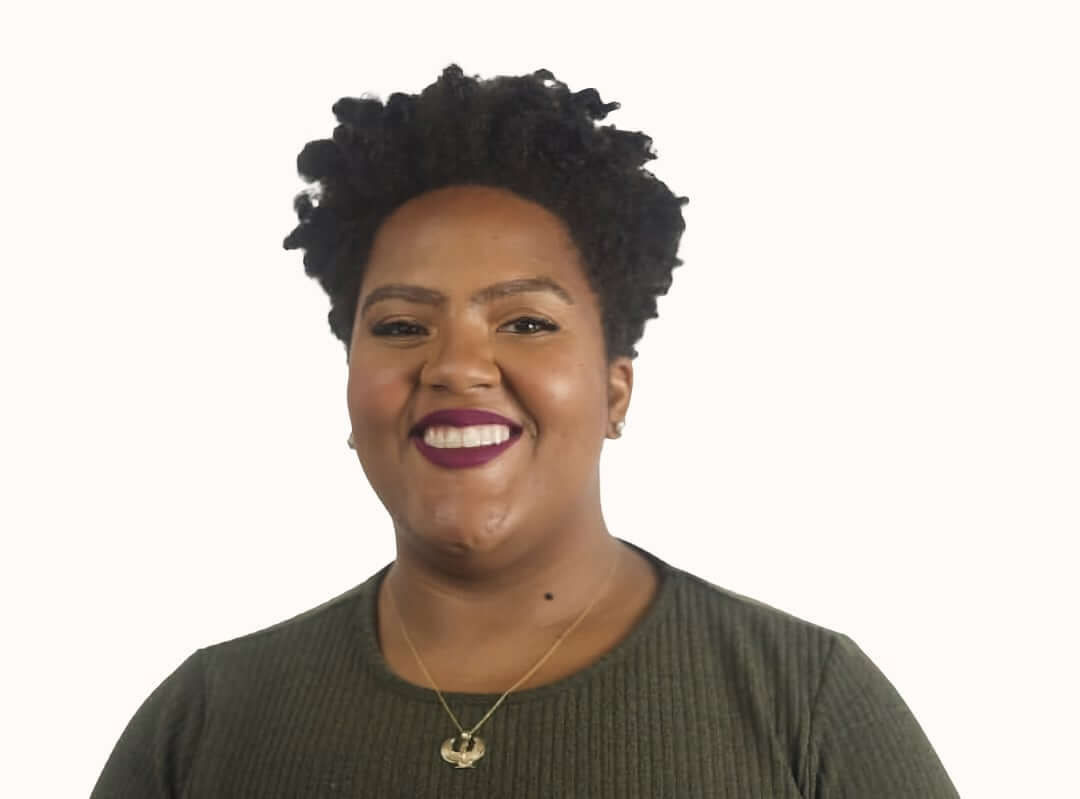
ChE Ware
The People Can Fly queers a traditional African American folktale through a four-part series of transdisciplinary Ring Shout rituals. The series title is inspired by an iconic folktale that describes the liberation of enslaved peoples who fly away from a plantation in a vertically spiraling Ring Shout, a healing resistance methodology through ceremonial drum and dance. The People Can Fly brings this folktellin’ alive in present tense through four participatory performance rituals that weave circles of Afro-Contemporary dance, storytelling, sacred invocations, vocal harmonizing, and body percussion to open portals of healing intergenerational land-based trauma. Immersive altar installations made with medicine from the land will be erected on sites of ancestral resistance, trauma, and collective memory in honor of QTGNC2-S+ Black and Indigenous lives lost to the ongoing intersectional violence of heteropatriarchal racism. The project centers nonbinary Black and Indigenous bodies to claim invisibilized medicine inheritances and conjure a movement of marronage.
